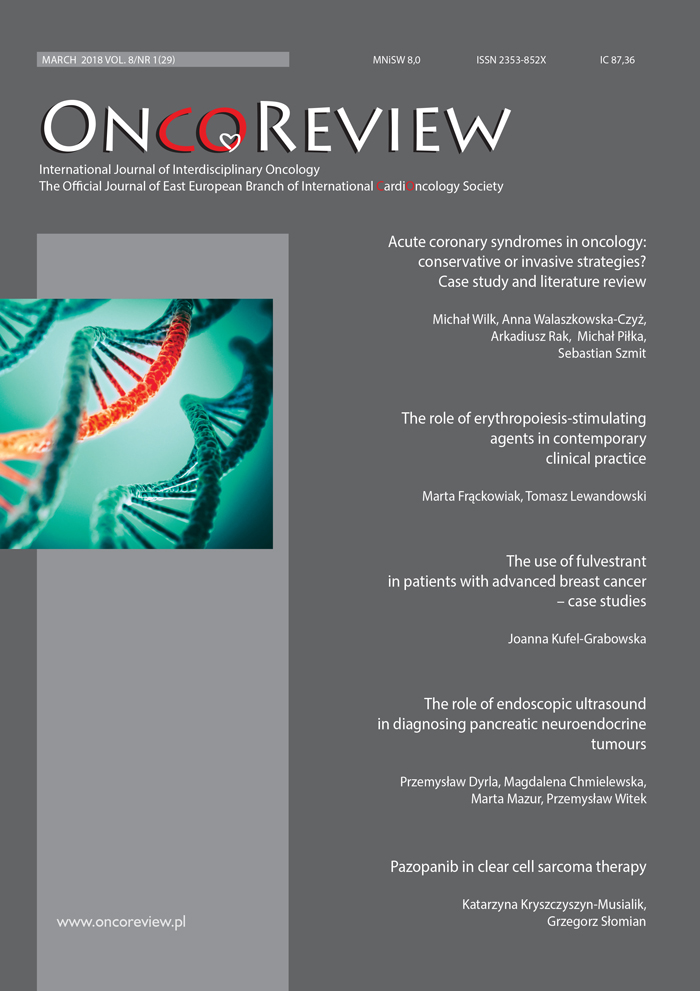The use of fulvestrant in patients with advanced breast cancer Case report
Main Article Content
Abstract
Breast cancer is the most common malignancy in women in Poland and the entire world, but thanks to early diagnostics and efficacious therapeutic methods, its prognosis is good. In some patients with advanced breast cancer, long-term survival is observed, which is why it is essential to select the most appropriate therapy, and to follow up on the course of disease and possible adverse events related to the treatment applied. The slow development of hormone-receptor-positive cancer, and a multitude of therapeutic options constitute a real challenge in palliative treatment. The use of fulvestrant resulted in a good response in both of the presented cases, and did not in any way comprise the daily lives of the patients over a long period of time.
Downloads
Metrics
Article Details

This work is licensed under a Creative Commons Attribution-NonCommercial 4.0 International License.
Copyright: © Medical Education sp. z o.o. This is an Open Access article distributed under the terms of the Attribution-NonCommercial 4.0 International (CC BY-NC 4.0). License (https://creativecommons.org/licenses/by-nc/4.0/), allowing third parties to copy and redistribute the material in any medium or format and to remix, transform, and build upon the material, provided the original work is properly cited and states its license.
Address reprint requests to: Medical Education, Marcin Kuźma (marcin.kuzma@mededu.pl)
References
2. Sporn MB, Lippman SM. Agents for Chemoprevention and Their Mechanism of Action. In: Kufe DW, Pollock RE, Weichselbaum RR et al. (ed). Holland-Frei Cancer Medicine. 6th edition. Hamilton (ON): BC Decker 2003.
3. Carlson RW. The history and mechanism of action of fulvestrant. Clin Breast Cancer 2005; 6(suppl 1): s5-s8.
4. Cardoso F, Costa A, Senkus E et al. 3rd ESO–ESMO International Consensus Guidelines for Advanced Breast Cancer (ABC 3). Ann Oncol 2017; 28(1): 16-33.
5. Robertson JFR, Bondarenko I, Trishkina E. Fulvestrant 500 mg versus anastrozole 1 mg for hormone receptor positive advanced breast cancer (FALCON): an international, randomised, double-blind, phase 3 trial. Lancet 2017; 388(10063): 2997-3005.

